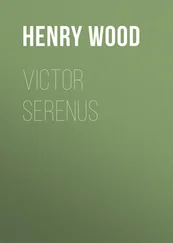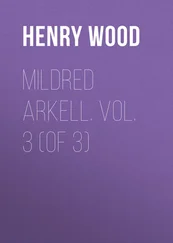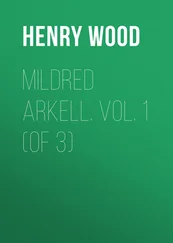Henry Wood - Verner's Pride
Здесь есть возможность читать онлайн «Henry Wood - Verner's Pride» — ознакомительный отрывок электронной книги совершенно бесплатно, а после прочтения отрывка купить полную версию. В некоторых случаях можно слушать аудио, скачать через торрент в формате fb2 и присутствует краткое содержание. Издательство: Иностранный паблик, Жанр: foreign_prose, literature_19, foreign_antique, на английском языке. Описание произведения, (предисловие) а так же отзывы посетителей доступны на портале библиотеки ЛибКат.
- Название:Verner's Pride
- Автор:
- Издательство:Иностранный паблик
- Жанр:
- Год:неизвестен
- ISBN:нет данных
- Рейтинг книги:4 / 5. Голосов: 1
-
Избранное:Добавить в избранное
- Отзывы:
-
Ваша оценка:
- 80
- 1
- 2
- 3
- 4
- 5
Verner's Pride: краткое содержание, описание и аннотация
Предлагаем к чтению аннотацию, описание, краткое содержание или предисловие (зависит от того, что написал сам автор книги «Verner's Pride»). Если вы не нашли необходимую информацию о книге — напишите в комментариях, мы постараемся отыскать её.
Verner's Pride — читать онлайн ознакомительный отрывок
Ниже представлен текст книги, разбитый по страницам. Система сохранения места последней прочитанной страницы, позволяет с удобством читать онлайн бесплатно книгу «Verner's Pride», без необходимости каждый раз заново искать на чём Вы остановились. Поставьте закладку, и сможете в любой момент перейти на страницу, на которой закончили чтение.
Интервал:
Закладка:
"It is of no use, Lionel. The world is closing for me."
It was closing for him even then, as he spoke—closing rapidly. Before another afternoon had come round, the master of Verner's Pride had quitted that, and all other pride, for ever.
CHAPTER XVII.
DISAPPEARED
Sweeping down from Verner's Pride towards the church at Deerham came the long funeral train—mutes with their plumes and batons, relays of bearers, the bier. It had been Mr. Verner's express desire that he should be carried to the grave, that no hearse or coaches should be used.
"Bury me quietly; bury me without show," had been his charge. And yet a show it was, that procession, if only from its length. Close to the coffin walked the heir, Lionel; Jan and Dr. West came next; Mr. Bitterworth and Sir Rufus Hautley. Other gentlemen were there, followers or pall-bearers; the tenants followed; the servants came last. A long, long line, slow and black; and spectators gathered on the side of the road, underneath the hedges, and in the upper windows at Deerham, to see it pass. The under windows were closed.
A brave heir, a brave master of Verner's Pride! was the universal thought, as eyes were turned on Lionel, on his tall, noble form, his pale face stilled to calmness, his dark hair. He chose to walk bare-headed, his hat, with its sweeping streamers, borne in his hand. When handed to him in the hall he had not put it on, but went out as he was, carrying it. The rest, those behind him, did not follow his example; they assumed their hats; but Lionel was probably unconscious of it, probably he never gave it a thought.
At the churchyard entrance they were met by the Vicar of Deerham, the Reverend James Bourne. All hats came off then, as his voice rose, commencing the service. Nearly one of the last walked old Matthew Frost. He had not gone to Verner's Pride, the walk so far was beyond him now, but fell in at the churchyard gate. The fine, upright, hale man whom you saw at the commencement of this history had changed into a bowed, broken mourner. Rachel's fate had done that. On the right as they moved up the churchyard, was the mound which covered the remains of Rachel. Old Matthew did not look towards it; as he passed it he only bent his head the lower. But many others turned their heads; they remembered her that day.
In the middle of the church, open now, dark and staring, was the vault of the Verners. There lay already within it Stephen Verner's father, his first wife, and the little child Rachel, Rachel Frost's foster-sister. A grand grave this, compared to that lowly mound outside; there was a grand descriptive tablet on the walls to the Verners; while the mound was nameless. By the side of the large tablet was a smaller one, placed there to the memory of the brave Sir Lionel Verner, who had fallen near Moultan. Lionel involuntarily glanced up at it, as he stood now over the vault, and a wish came across him that his father's remains were here, amidst them, instead of in that far-off grave.
The service was soon over, and Stephen Verner was left in his resting-place. Then the procession, shorn of its chief and prominent features, went back to Verner's Pride. Lionel wore his hat this time.
In the large drawing-room of state, in her mourning robes and widow's cap, sat Mrs. Verner. She had not been out of her chamber, until within the last ten minutes, since before Mr. Verner's death; scarcely out of her bed. As they passed into the room—the lawyer, Dr. West, Jan, Mr. Bitterworth, and Sir Rufus Hautley—they thought how Mrs. Verner had changed, and how ill she looked; not that her florid complexion was any paler. She had, indeed, changed since the news of John Massingbird's death; and some of them believed that she would not be very long after Mr. Verner.
They had assembled there for the purpose of hearing the will read. The desk of Mr. Verner was brought forward and laid upon the table. Lionel, taking his late uncle's keys from his pocket, unlocked it, and delivered a parchment which it contained to Mr. Matiss. The lawyer saw at a glance that it was the old will, not the codicil, and he waited for Lionel to hand him also the latter.
"Be so kind as read it, Mr. Matiss," said Lionel, pointing to the will.
It had to be read; and it was of no consequence whether the codicil was taken from the desk before reading the original will, or afterwards, so Mr. Matiss unfolded it, and began.
It was a somewhat elaborate will—which has been previously hinted. Verner's Pride, with its rich lands, its fine income, was left to John Massingbird; in the event of John's death, childless, it went to Frederick; in the event of Frederick's death, childless, it passed to Lionel Verner. There the conditions ended; so that, if it did lapse to Lionel, it lapsed to him absolutely. But it would appear that the contingency of both the Massingbirds dying had been only barely glanced at by Mr. Verner. Five hundred pounds were left to Lionel: five hundred to Jan; five hundred to Decima; nothing to Lady Verner. Mrs. Verner was suitably provided for, and there were bequests to servants. Twenty-five pounds for "a mourning ring" were bequeathed to each of the two executors, Sir Rufus Hautley, and Mr. Bitterworth; and old Matthew Frost had forty pounds a year for his life. Such were the chief features of the will; and the utter astonishment it produced on the minds and countenances of some of the listeners was a sight to witness. Lionel, Mrs. Verner, Jan, and Sir Rufus Hautley were petrified.
Sir Rufus rose. He was a thin, stately man, always dressed in hessian boots and the old-fashioned shirt-frill. A proud, impassive countenance was his, but it darkened now. "I will not act," he began. "I beg to state my opinion that the will is an unfair one—"
"I beg your pardon, Sir Rufus," interrupted the lawyer. "Allow me a word. This is not the final will of Mr. Verner; much of it has been revoked by a recent codicil. Verner's Pride comes to Mr. Lionel. You will find the codicil in the desk, sir," he added to Lionel.
Lionel, his pale face haughty, and quite as impassive as that of Sir Rufus, for anything like injustice angered him, opened the desk again. "I was not aware," he observed. "My uncle told me on the day of his death that the will would be found in his desk; I supposed that to be it."
"It is the will," said Mr. Matiss. "But he caused me to draw up a later codicil, which revoked the bequest of Verner's Pride. It is left to you absolutely."
Lionel was searching in the desk. The few papers in it appeared to be arranged with the most methodical neatness: but they were small, chiefly old letters. "I don't see anything like a codicil," he observed. "You had better look yourself, Mr. Matiss; you will probably recognise it."
Mr. Matiss advanced to the desk and looked in it. "It is not here!" he exclaimed.
Not there! They gazed at him, at the desk, at Lionel, half puzzled. The lawyer, with rapid fingers, began taking out the papers one by one.
"No, it is not here, in either compartment. I saw it was not, the moment I looked in; but it was well to be sure. Where has it been put?"
"I really do not know anything about it," answered Lionel, to whom he looked as he spoke. "My uncle told me the will would be found in his desk. And the desk has not been opened since his death."
"Could Mr. Verner himself have changed its place to somewhere else?" asked the lawyer, speaking with more than usual quickness, and turning over the papers with great rapidity.
"Not after he told me where the will was. He did not touch the desk after that. It was but just before his death. So far as I know, he had not had his desk brought out of the closet for days."
"Yes, he had," said the lawyer. "After he had executed the codicil on the evening previous to his death, he called for his desk, and put the parchment into it. It lay on the top of the will—this one. I saw that much."
Читать дальшеИнтервал:
Закладка:
Похожие книги на «Verner's Pride»
Представляем Вашему вниманию похожие книги на «Verner's Pride» списком для выбора. Мы отобрали схожую по названию и смыслу литературу в надежде предоставить читателям больше вариантов отыскать новые, интересные, ещё непрочитанные произведения.
Обсуждение, отзывы о книге «Verner's Pride» и просто собственные мнения читателей. Оставьте ваши комментарии, напишите, что Вы думаете о произведении, его смысле или главных героях. Укажите что конкретно понравилось, а что нет, и почему Вы так считаете.












